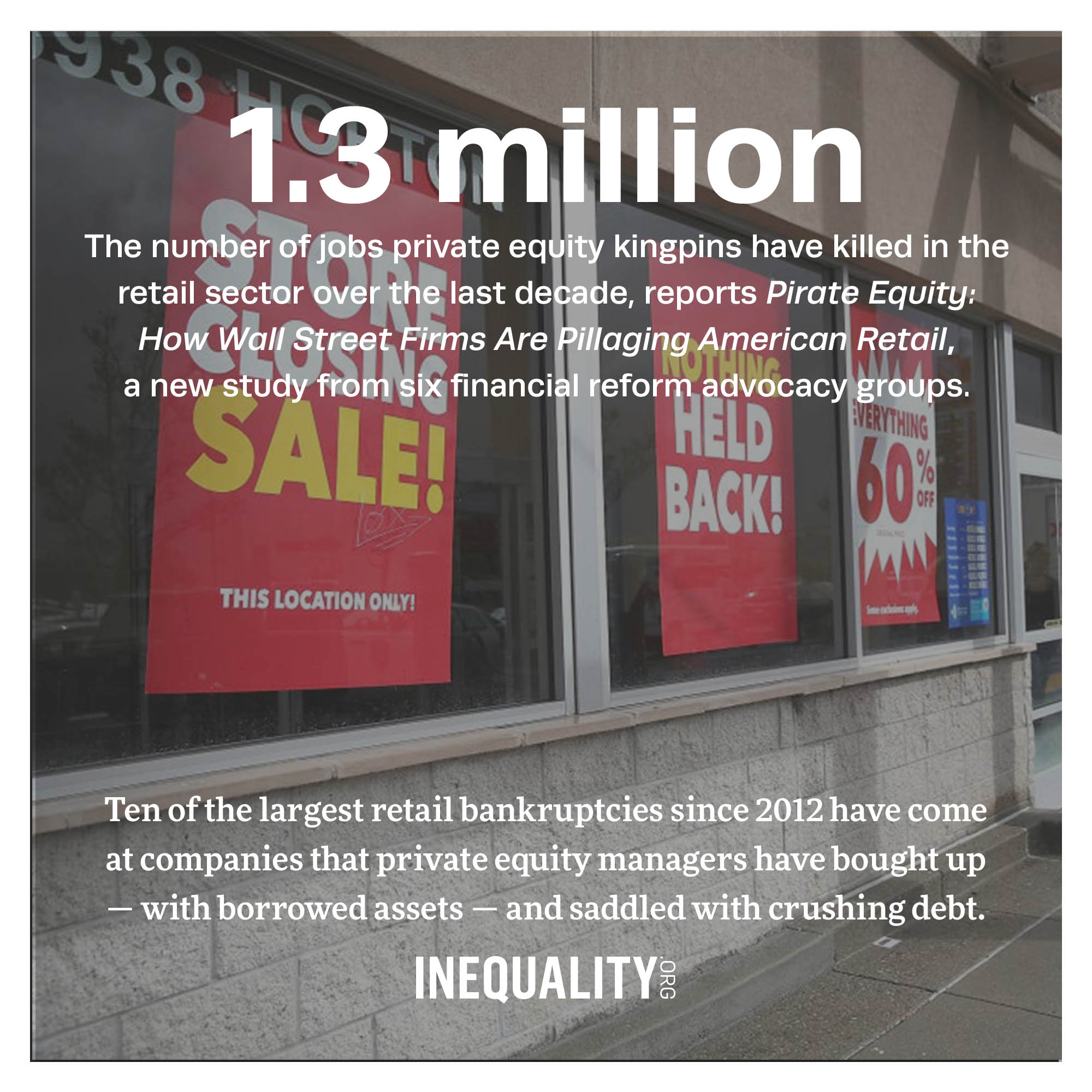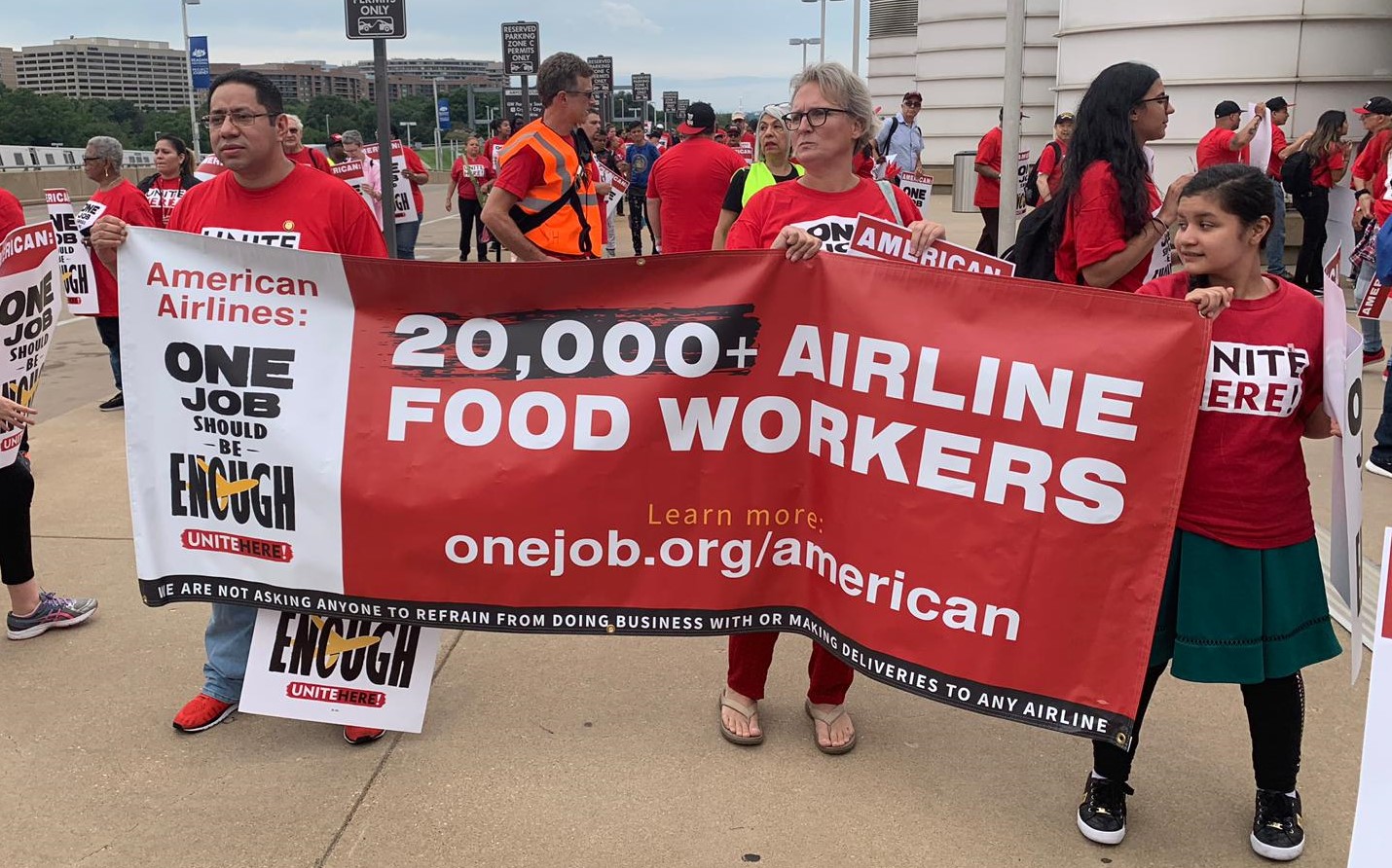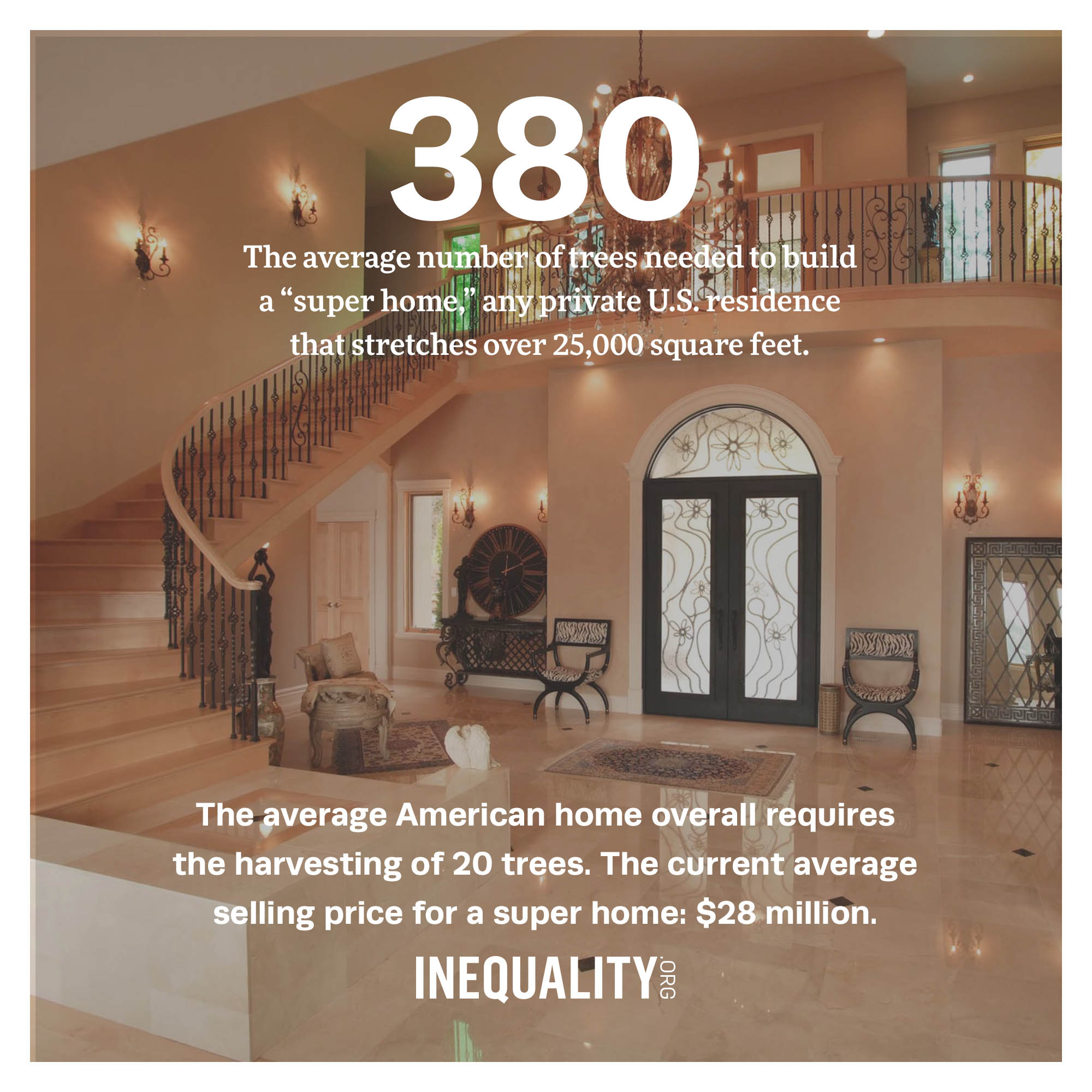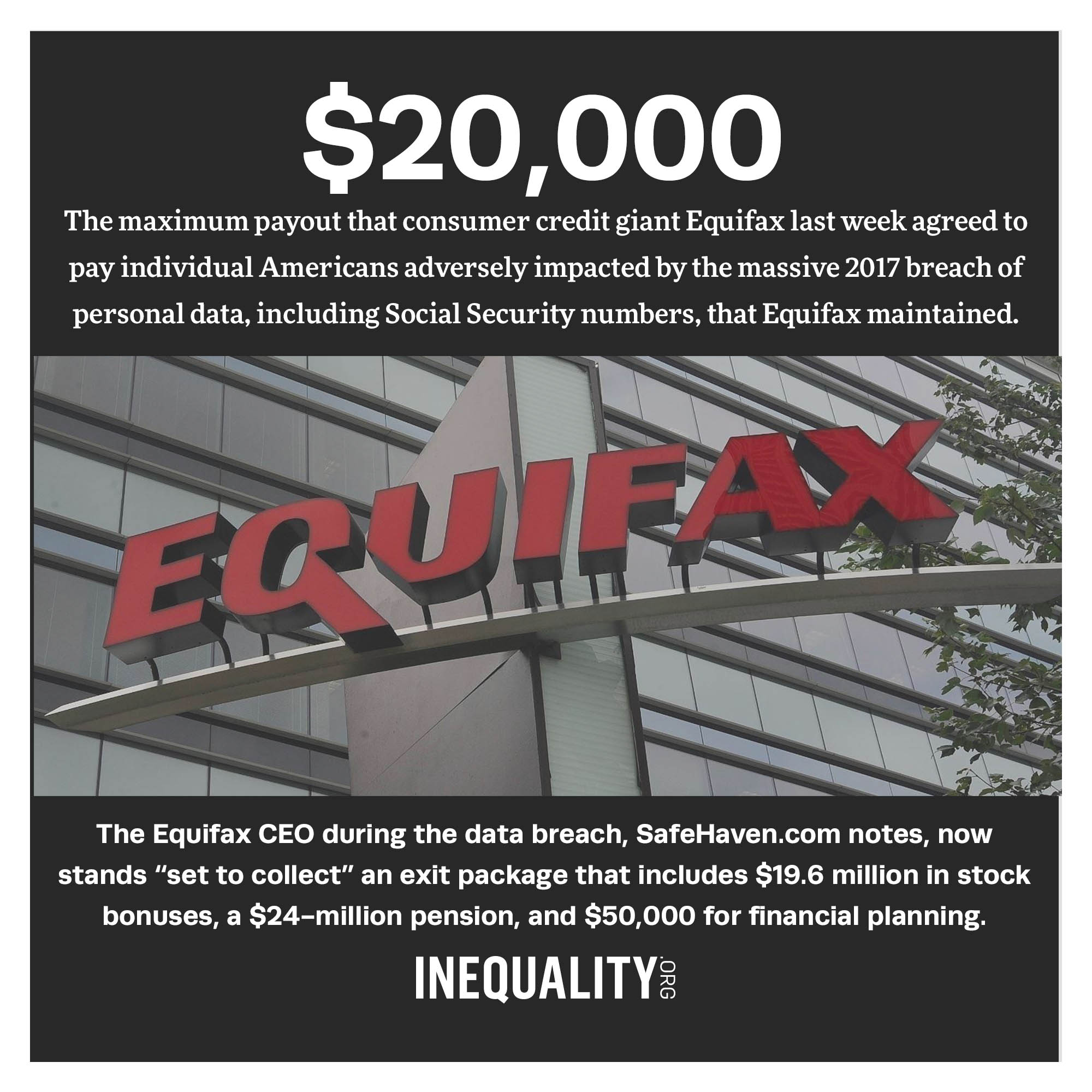We take a look this week on accountability, from the Puerto Ricans demanding a political system that works for everyone to the gutsy battle airline workers are waging against some classic corporate greed.
|
THIS WEEK
|
|
Puerto Rico taught us a beautiful lesson about accountability last week. On Wednesday, Governor Ricardo Rosselló stepped down, after the island’s residents gathered en masse to protest his corruption and hateful rhetoric.
But Puerto Ricans aren’t stopping with Rosselló’s resignation. They’re already calling for the ouster of Rosselló’s successor, an insider complicit in the previous administration’s corruption. And they’re not stopping there either. The only real answer, Puerto Ricans are showing us, will be a political and economic system that works for everyone, not just the rich and well-connected, and activists are building a movement to bring that system to life.
We have more this week on accountability, including a look at the gutsy battle airline workers are waging against some classic corporate greed.
Chuck Collins, for the Institute for Policy Studies Inequality.org team |
|
|
|
|
INEQUALITY BY THE NUMBERS
|
 |
|
|
|
|
|
|
FACES ON THE FRONTLINES
|
 |
The Airline Workers Calling Out Corporate Greed
|
| Airline catering workers nationwide are banding together this summer with a crystal-clear message: One job should be enough. Thousands of the subcontracted workers who prepare and deliver in-flight meals have been voting to go on strike for better pay and healthcare from the multi-billion dollar airline industry. Workers from around the country came together for a picket line last week at Washington National Airport, joined by a host of elected officials — including several presidential candidates — and other allies. Jarod Facundo has a dispatch from their protest. |
|
|
|
|
WORDS OF WISDOM
|
 |
|
|
|
|
|
PETULANT PLUTOCRAT
OF THE WEEK
|
 |
A CEO Who Thinks He Deserves His Workers’ Tips
|
| Ever stiff your server at a restaurant and tip the restaurant owner instead? You’ve essentially been doing just that if you’ve been using DoorDash to get food orders brought to your front door. DoorDash, America’s biggest on-demand food delivery app, started guaranteeing its delivery workers a minimum per-order payment in 2017. But DoorDash has been deducting whatever tips deliverers receive from the guaranteed payment, a move that leaves tipped deliverers with no increase in overall pay. In February, a similar practice at a DoorDash competitor created quite a ruckus, and the competitor backed down and let workers get their tips. But DoorDash CEO Tony Xu stood firm, defending his company’s tip grab as a model built with workers “in mind.” Last week, after a New York Times exposé, Xu relented and announced an end to what has amounted to DoorDash “tip theft.” the controversy’s impact on DoorDash's market valuation, which deep pocket investors drove to $12.6 billion this past May. |
|
|
|
|
GREED AT A GLANCE
|
 |
|
|
|
|
|
|
TOO MUCH
|
 |
| A Timeless Lesson from an Inequality Ground Zero |
| In West Africa, the continent’s most unequal region, the richest 1 percent hold more net worth than the entire bottom 99 percent. The West African governments these top 1 percenters dominate spend significantly less than other governments in Africa to advance social well-being. And where do West African governments choose to steer the resources they do spend? These governments turn out to be quite generous with tax incentives for multinational corporate giants. The amount they dedicate annually to these corporate subsidies, Oxfam researchers point out in a compelling new report, “would be enough to build about 100 modern and well-equipped hospitals each year in the region.” Inequality.org co-editor Sam Pizzigati, author of The Case for a Maximum Wage, has more. |
|
|
|
|
|
|
MUST READS
|
This week on Inequality.org
Manuel Perez-Rocha, Scott Sinclair, and Ethan Earle, A Better NAFTA Deal Would Put People and Planet First. The deal now on the table locks in inequality and ecological collapse.
Sarah Anderson, Three Bills to Rein in Executive Pay. Shortly before heading home for the summer recess, members of Congress are rushing to introduce proposals for cracking down on unpopular, overpaid executives.
Chuck Collins, It’s Time for a 100 Percent Tax on Billionaire Estates. If we are concerned (and we should be) about the health of our economy, strengthening — not eliminating — the estate tax is the solution.
Elsewhere on the Web
Sarah Hutcherson, Brightly Shows How Worker-Owned Cooperatives Can Scale Up, Triple Pundit. We can build a prosperous economy without mega-million CEOs.
Meagan Day, The Rich Are Committing Crimes Against Nature, Jacobin. Conspicuous consumption ought to be considered a form of “green crime.”
Joel Kotkin, The Tech Oligarchs Are Going to Destroy Democracy — Unless We Stop Them, Daily Beast. Historians define oligarchy as “extreme concentrations” of power and wealth. Check.
Marshall Steinbaum, Student Debt and Racial Wealth Inequality, Jain Family Institute. How cancelling student debt would significantly reduce racial wealth gaps.
Alma Cohen, Moshe Hazan, Roberto Tallarita, and David Weiss, The politics of CEOs, Vox. A new study documents how U.S. corporate CEOs have a significant preference for GOP candidates.
Farhad Manjoo, The Tech Industry Is Building a Vast Digital Underclass, New York Times. The underside of high-tech CEO “genius.”
Anna Stansbury, Want to Boost U.S. Productivity? Tackle Inequality, Bloomberg. Addressing inequities could be a powerful solution to concerns about the U.S. productivity slowdown. |
|
|
|
|
A FINAL FIGURE
|
 |
|
|
|
|
|
|